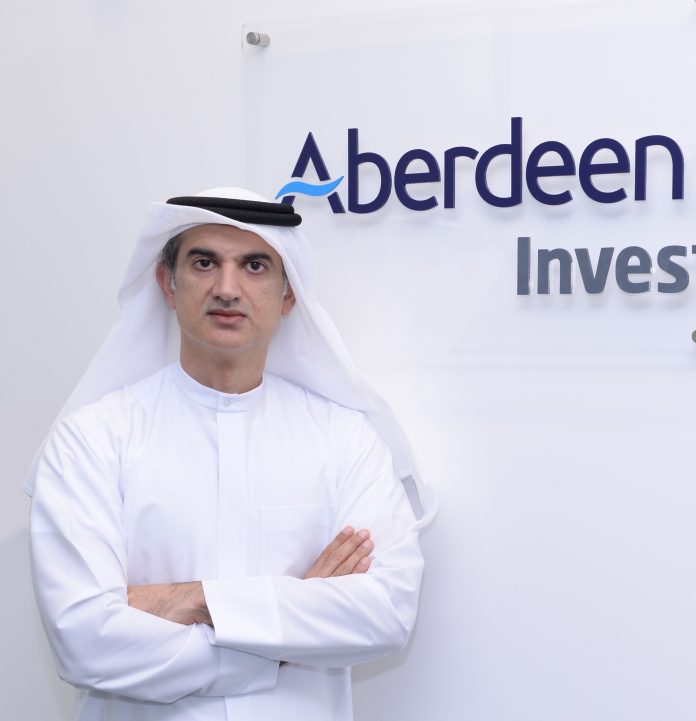The aftermath of the economic and market turbulence due to Covid-19 has redefined the landscape for GCC member states. A relatively bleak growth outlook requires a shift in expectations – with a recovery unlikely until 2021.
However, some GCC countries such as the UAE, Kuwait and Saudi Arabia are well placed to ensure this recovery becomes a reality as their strong Sovereign Wealth Funds (SWFs) will pay a vital role in helping the economies get back on their feet.
As with other regions globally, the growth outlook for the Middle East has suffered from the economic shutdown at the mercy of the pandemic. This has triggered volatile and declining asset prices, collapsed oil prices, shattered investor sentiment, negligible consumer spending and sweeping monetary and fiscal responses.
Amid such knock-on effects, the Institute of International Finance (IIF) has described the current situation as the biggest economic challenge for the GCC states in their history. This is reflected by a range of economic forecasts.
By April, the International Monetary Fund (IMF) had reversed its early 2020 overall GDP projection of the region growing by 2.5% for 2020, to a contraction of 2.8% for the year. The IIF, meanwhile, expects a decline of 4.4% in 2020, with a fall of 5.3% in oil GDP, based on the OPEC+ agreement to cut production, and an average contraction of 3.8% in non-oil GDP industries.
The dampening effect of Covid-19 and the outlook for oil has led Fitch Ratings to project that most GCC sovereigns will post fiscal deficits of between 15% and 25% of GDP in 2020.
On top of this, a squeeze on finances generally is being felt via spending cuts in relation to infrastructure and other capital investment projects. The dent to investor confidence also poses a threat to other cornerstones of the region’s economy – including consumer spending, real estate and tourism. Along with further key non-oil sectors such as trade, hospitality and logistics, the GCC must play a wait-and-see game.
To put the situation into perspective, 1.4 million Chinese tourists visited GCC states in 2018 – a figure that had been projected to grow to 2.2 million by 2023. And 9 million people typically visit Saudi Arabia for religious pilgrimage, accounting for a significant portion of travel receipts. In both countries, travel bans will have far-reaching implications.
Yet all GCC countries have responded with economic stimulus – ranging from public spending cuts, reduced salaries for government employees, loan repayment holidays to businesses, increased health spending and salary support to the private sector. Such packages have so far amounted to more than 10% of GDP in Kuwait and the UAE, and over 7% in Saudi Arabia.
Setting sights on 2021
Market participants are already eyeing next year for economic recovery. This is fuelled by expectations of easing in cuts in oil production to some extent and a resumption in demand from consumers that will drive activity in non-oil sectors.
The UAE, Saudi Arabia and Kuwait are particularly well-positioned to fulfil such optimism as they can manage relatively large deficits due to their levels of public foreign assets.
Across the GCC, gross public foreign assets are at around $2.6 trillion, with sovereign wealth funds (SWFs) managing roughly 70% of them, diversified across public equities and fixed income.
A recent report by the Sovereign Wealth Fund Institute (SWFI) of the top 10 largest wealth funds placed the Abu Dhabi Investment Authority in third ($579.6 billion in assets), the Kuwait Investment Authority Fund was fourth ($533.6 billion) and Saudi Arabia’s Public Investment Fund ranked ninth ($360.0 billion). And according to Fitch Ratings, the ratio of sovereign net foreign assets to GDP as of 2019 reached roughly 470% in Kuwait, 230% in Abu Dhabi, and 70% in Saudi Arabia.
IIF research also highlights the GCC’s sound banking systems, supported by their strong capitalisation, adequate liquidity and relatively low levels of non-performing loans.
Awaiting the next step
Ultimately, the pace and extent of the economic rebound in GCC member states will depend on how proactive governments are going forward, in relation to programmes and incentives to support the broader economies and, especially, consumption.
This reinforces the potential for SWFs in the region to provide additional support to their own economies, to bolster existing efforts to help local banks and private sectors fight the impacts of Covid-19.











